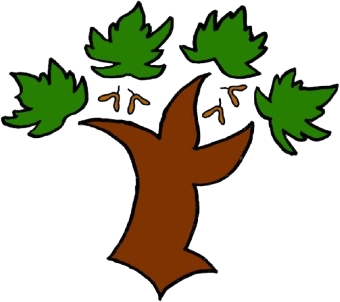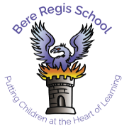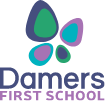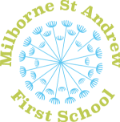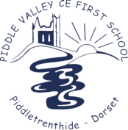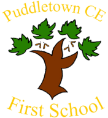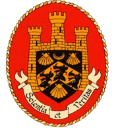
EYFS
Early Years Foundation Stage Curriculum - Intent, Implementation and Impact
The Early years Foundation Stage, EYFS, is the period of education from birth to 5 years. In Foundation Stage 1 the majority of our pupils attend the charity run pre-school on site, Puddletown Pre-school. We work very closely with them for a successful transition. We also have children that start from other settings and we visit the children within their settings before they start. We accommodate a maximum of 30 pupils in our reception class.
Intent: why do we teach what we teach?
At Puddletown First School we place great value on the development of children as individuals and providing them with the skills, knowledge and understanding they need to prepare them for the challenges beyond. Our aim in the EYFS is to build strong foundations and resilience, so that they can grow to become successful, life-long learners and members of society.
We believe that a child’s first experience of school should be a memorable and a positive start to their learning journey. We use a topic approach to teach the EYFS curriculum which supports learning, widens vocabulary, consolidates and deepens knowledge and ensures children meet their next steps. A vocabulary rich environment that supports learning is carefully planned using the Cornerstones Curriculum.
Cornerstones have carefully designed their EYFS curriculum to help meet national early years requirements whilst still prioritising a play-based ethos and providing broad and balanced across all areas of learning. The curriculum is aligned with the Early Learning Goals and Development Matters.We support our children in developing the skills needed in order to learn to listen, speak and meet the high expectations for behaviour by working together and being kind. Personal, social and emotional development and communication and language are curriculum areas which are prioritised within our setting. In our setting your children will experience an enabling environment which is warm and supportive. This in turn supports the children to begin to link learning to their play and exploration through our holistic provision.
Our curriculum is progressive and purposeful and provides the children with the knowledge and skills to be ready for learning in key stage 1 and key stage 2 which will impact them positively in their later life. We prepare children to reach the Early Learning Goals by the end of Foundation stage and ensure that all children make at least good progress from their starting point.
Throughout their time in our EYFS, the children develop a sense of belonging to the school community and are ready to transition into year 1. They have secure foundations and are ready to continue their learning journey at Puddletown. They move forward as confident, independent learners who are able to communicate their ideas.
Implementation: how do we teach what we teach?
At Puddletown First School we follow the Early Years Statutory framework for teaching and learning of the EYFS curriculum. This ensures there is a broad, balanced progressive learning environment and curriculum. The children will learn new skills, acquire new knowledge and demonstrate understanding through the seven areas of the EYFS curriculum: Personal Social Education, Physical development, Communication And Language, Literacy, Maths, Understanding the World, Expressive Arts and Design. Our children learn through their engagement with a range of learning opportunities which are made up of a balanced initiative of child-initiated and adult-directed activities.
Over the course of a week, all children will participate in literacy, vocabulary and maths tasks directed by an adult. There is often other planned directed tasks which reflect the needs of the children in other curriculum areas. Practical, purposeful resources in continuous provision support play, the learning process and language development. Through continuous provision children are using, consolidating and challenging skills taught throughout the year on a daily basis. During the school day, children will have an opportunity to work independently, work collaboratively with their friends and with members of staff.
We follow Little Wandle for our phonics. There are phonic lessons every day and the children have an opportunity to write on a daily basis. Children take part in guided reading sessions three times a week and their reading books reflect their phonic ability. Language development is promoted through story telling sessions. We follow the White Rose Maths scheme and children take part in lots of directed maths activities as well as adult led sessions.
We regularly assess where the children are and then ensure that our planning, adult interaction and learning environment; including continuous provision, to support children to reach their next steps. We include interventions for groups or individuals if and when necessary.The role of the adult is key. Adults are organised to accommodate indoor and outdoor provision. They support learning through a mixture of direct teaching and supporting play through child initiated activitites. Through observation, direct teaching, quality interactions, questioning and modelling the adult will create an ‘enabling’ environment in which children can progress. We keep parents/carers informed and we meet regularly through parents evening , open afternoons, curriculum meetings, home-school learning diary and shining light certificates.
We know that support from parents impacts positively on the progress the children make. EYFS staff play a pivotal role in supporting children’s transition into Key Stage 1. We prepare children for Year 1 with visits to their new class, meeting the teacher and ensuring that the classroom environments are similar at the end of EYFS and the start of Year 1.
Impact: how do we know what children have learnt and how well they have learnt it? The impact of our curriculum is measured by assessment procedures which allow us to measure outcomes against all schools nationally. We strive to ensure that our children’s progress across the EYFS curriculum is at least good from their varied starting points. We also strive for children to reach the Early Learning Goals at the end of Reception and to be in line with National Expectations. We measure the percentage of pupils achieving age related expectations at regular intervals throughout the academic year. At pupil progress meetings and through ongoing professional dialogue we discuss progress and achievement of all pupils and put targeted interventions in place if needed.
The impact of our curriculum will also be measured by how effectively it helps our pupils develop into well rounded individuals who carry with them the knowledge, independence and communication skills which will make them lifelong learners and successful citizens. We endeavour for pupils to be Key Stage 1 ready and have an understanding of our school ‘READY RESPECTFUL SAFE’ values by the time they leave EYFS.
